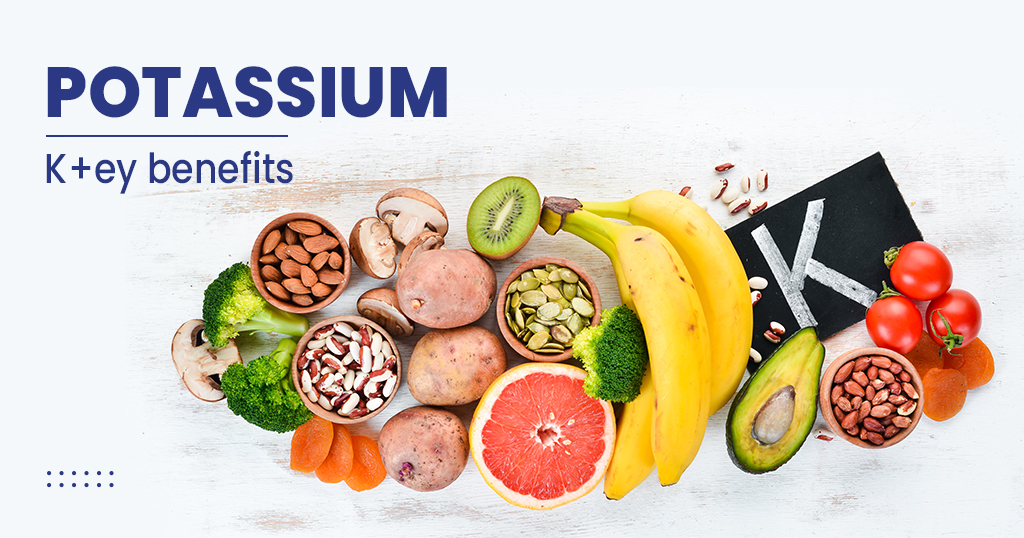The Benefits of Potassium: Unlocking Its Potential for a Healthier You
At our company, we understand the importance of providing you with valuable information that can help you make informed decisions about your health. In this comprehensive article, we will delve into the numerous benefits of potassium and how it can contribute to your overall well-being.
Understanding Potassium
Potassium is an essential mineral that plays a vital role in various bodily functions. It is an electrolyte, meaning it carries an electric charge that enables it to conduct electrical impulses throughout the body. This mineral is primarily found inside cells and is crucial for maintaining proper cell function.
The Role of Potassium in Health
Potassium offers a wide range of benefits for your health. Let’s explore some of the key advantages:
Regulating Blood Pressure
Potassium is known for its ability to help regulate blood pressure levels. It counteracts the effects of sodium, a mineral that can contribute to high blood pressure. By increasing potassium intake, you can help maintain healthy blood pressure levels, reducing the risk of cardiovascular diseases.
Supporting Heart Health
As an electrolyte, potassium is essential for maintaining a healthy heartbeat. It helps in transmitting electrical impulses, which regulate the contraction and relaxation of the heart muscles. Adequate potassium levels can support heart health and reduce the risk of arrhythmias and other cardiovascular conditions.
Enhancing Muscle Function
Potassium plays a significant role in muscle function. It aids in muscle contraction, making it essential for activities such as exercise and movement. By ensuring sufficient potassium intake, you can support optimal muscle function and prevent muscle cramps and weakness.
Promoting Bone Health
While calcium often takes the spotlight when it comes to bone health, potassium also plays a crucial role. It helps in the preservation of bone mineral density, reducing the risk of osteoporosis and fractures. Including potassium-rich foods in your diet can contribute to stronger and healthier bones.
Supporting Kidney Function
Potassium assists in maintaining proper kidney function. It aids in the filtration process, helping to eliminate waste and toxins from the body. Adequate potassium levels can reduce the risk of kidney stones and support overall kidney health.
Recommended Daily Intake
The recommended daily intake of potassium varies depending on age, sex, and overall health. For most adults, the general guideline is to consume around 2,600 to 3,400 milligrams (mg) per day. However, it is always best to consult with a healthcare professional to determine the ideal potassium intake for your specific needs.
Top Potassium-Rich Foods
If you’re looking to increase your potassium intake, consider incorporating these nutrient-rich foods into your diet:
Bananas
Oranges
Avocados
Spinach
Sweet potatoes
Tomatoes
Salmon
Yogurt
These foods not only provide a good amount of potassium but also offer various other essential nutrients that contribute to overall health.

Potassium is a vital mineral that offers numerous benefits for your health. From regulating blood pressure to supporting heart health and muscle function, it plays a crucial role in various bodily functions. By incorporating potassium-rich foods into your diet and maintaining adequate levels, you can unlock its potential and enjoy a healthier, more vibrant life.
Frequently Asked Questions about the Benefits of Potassium
1. What are the benefits of potassium?
Potassium is essential for maintaining proper heart function, regulating blood pressure, supporting muscle and nerve health, and balancing fluids in the body.
2. How does potassium help regulate blood pressure?
Potassium helps relax the walls of blood vessels, which promotes better blood flow and lowers blood pressure levels.
3. Can potassium reduce the risk of stroke?
Yes, studies have shown that diets rich in potassium can help lower the risk of stroke by improving cardiovascular health.
4. Does potassium play a role in muscle health?
Absolutely! Potassium is crucial for proper muscle contraction and maintaining muscle strength. It also helps prevent muscle cramps and spasms.
5. How does potassium benefit bone health?
Potassium helps reduce the loss of calcium from the body, which can contribute to stronger bones and a lower risk of osteoporosis.
6. Can potassium help with anxiety and stress?
Yes, potassium is involved in regulating the body’s stress response and can help promote a sense of calmness and relaxation.
7. Does potassium have any impact on kidney health?
Yes, potassium plays a role in maintaining proper kidney function and can help prevent the formation of kidney stones.
8. Can potassium-rich foods help with weight loss?
Yes, potassium-rich foods are often low in calories and high in nutrients, making them a great addition to a weight-loss diet.
9. How does potassium benefit the nervous system?
Potassium is essential for proper nerve function, including transmitting nerve impulses and maintaining overall nervous system health.
10. Are there any specific dietary sources of potassium?
Yes, some excellent sources of potassium include bananas, oranges, spinach, sweet potatoes, avocados, and yogurt.




